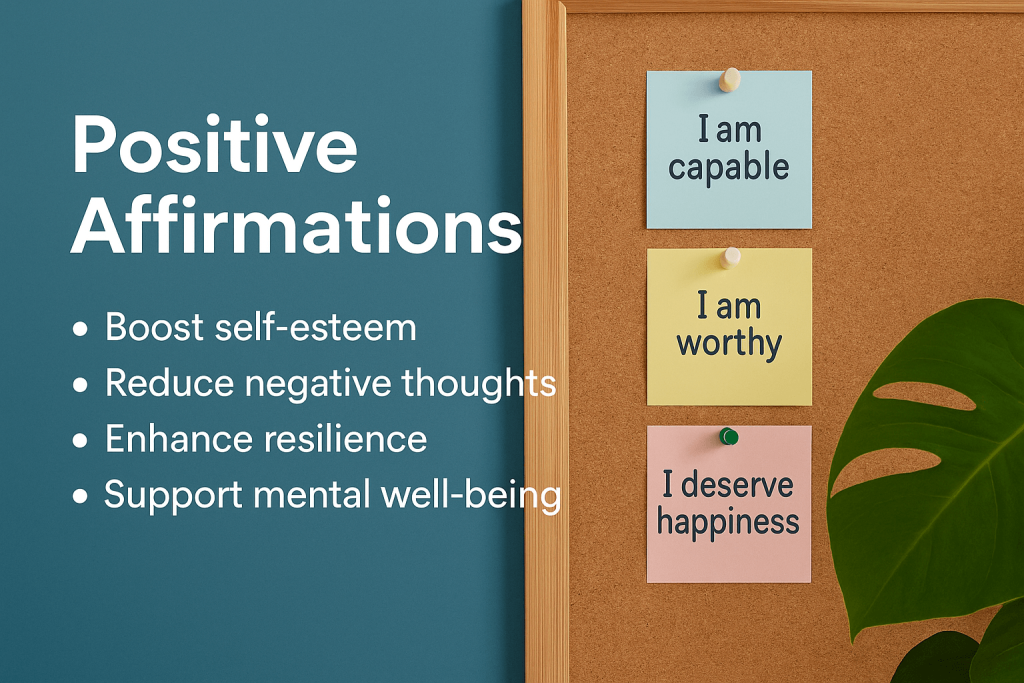Positive Affirmations for Mental Resilience and Self-Esteem

Positive affirmations are intentional, empowering phrases that challenge negative thoughts and promote a more constructive inner dialogue. Regularly repeating statements like “I am capable,” “I am worthy,” or “I deserve happiness” can help reprogram the subconscious mind, reinforcing a mindset rooted in confidence and self-belief. This practice has been widely embraced in both psychological therapy and self-help disciplines for its transformative impact on mental well-being.
While the concept may seem simple, the neurological impact is profound. Neuroscience studies suggest that affirmations can stimulate the brain’s reward system, leading to increased self-worth and motivation. By reinforcing positive beliefs, affirmations reduce the dominance of automatic negative thoughts—those unconscious patterns that often fuel anxiety, imposter syndrome, or self-doubt.
To make affirmations part of your daily routine, consider placing sticky notes on your bathroom mirror, refrigerator, or workspace. Alternatively, apps like ThinkUp, I Am, or Gratitude allow you to schedule reminders or record your own voice reciting affirmations for guided playback. Over time, this consistent repetition strengthens neural pathways associated with positivity and resilience.
Affirmations are most effective when they are present-tense, specific, and aligned with your goals. For example, instead of saying “I will be happy,” try “I am creating joy in my life today.” This helps anchor the statement in the present moment, encouraging the brain to perceive it as a current truth rather than a distant possibility.
Core Benefits of Practicing Daily Affirmations:
- Boosts self-esteem and emotional stability
- Reduces self-sabotaging and limiting beliefs
- Encourages mindfulness and present-moment awareness
- Reinforces motivation and goal alignment
- Cultivates long-term emotional resilience
Positive affirmations can be tailored to any area of life—career, health, relationships, or personal development. They offer a simple yet powerful form of self-support, particularly when practiced during transitional periods or emotional lows. When paired with other mindful habits such as journaling or breathwork, affirmations become part of a sustainable framework for long-term mental wellness.
Ultimately, the strength of an affirmation lies not just in its words, but in its repetition, intention, and emotional resonance. Like any habit, its power grows with consistency. By choosing affirmations that reflect your core values and repeating them with sincerity, you can begin to shift your mental and emotional landscape in subtle but lasting ways.




